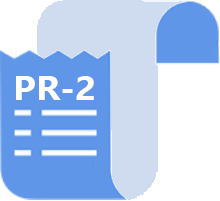“Secret Settlements” - Double Standard for IMR Rules

Since the introduction of Independent Medical Review (IMR), claims administrators working on behalf of employers and insurers haven’t always played fair. In seeking to uphold denials of authorization, payors have skirted IMR regulations — and tried to hide their misdeeds from the public through settlements which include dissembling limited disclosure agreements.
These “secret settlements” demonstrate a double standard for compliance, as employers and insurers escape not only financial penalties, but public scrutiny.
Efficient Dispute Resolution
The IMR process took effect in January 2013, as mandated by Senate Bill 863. The state’s intent was to give claims administrators and injured workers a way to settle disputes over requested treatments in a more efficient and cost-effective way than through the courts. That efficiency is dependent on both sides cooperating with the IMR procedures outlined in California Code of Regulations (CCR) Section 9792.10.1.
Like Independent Bill Review (IBR) as an alternative to liens, IMR is California workers’ comp’s attempt to streamline dispute resolution. Also like IBR, the private company Maximus Federal Services (for better or worse) is the independent reviewer.
When an employer or insurer’s claims administrator incorrectly denies a compliant Request for Authorization (RFA), the patient must initiate IMR (the provider can play a supporting role, unless the denied RFA in question is retrospective for emergency treatment). Once IMR is initiated, the payor must adhere to mandated rules and deadlines, including the timely provision of relevant documents regarding utilization review.
Failure to comply with these requirements carries penalties. But as last year’s settlements shows, those penalties are negotiable.
Secret Settlements Over IMR Violations
In 2016, Workers’ Comp Executive sought to follow up on the Division of Workers’ Compensation (DWC)’s first major action to enforce IMR rules and discourage payor-cased delays: Orders to Show Cause (OSC) issued to some of the biggest insurers and third-party administrators in California, including Sedgwick and Zurich. DWC and Department of Industrial Relations (DIR) representatives told WCE that hearings were scheduled.
As WCE eventually discovered, that was a lie — one that was brazenly repeated for months on end. In 2017, WCE learned that 6 of the 8 payors accused of delaying IMR had settled with the DWC for drastically reduced penalties.
The settlements included reductions between 30% and 84% of proposed fines.
Far worse, DIR attorneys tried to hide the settlements from the public, providing false information to the Department’s public information officers (PIO). Each time WCE inquired about the pending cases, PIO’s repeated the falsehoods fed to them by the attorneys, claiming that hearings were scheduled for cases that were already settled behind closed doors.
For her part, DIR Director Christine Baker was “horrified” to learn of the cover-up, and promptly ordered full disclosure upon learning of it.
Even more disturbingly, the settlements included limited disclosure agreements in which the DWC must immediately notify the payors of “a request, subpoena, or order” to reveal the settlements to media or other interested parties — and to hold off on revealing the settlements until a week before the required legal deadline to do so.
While the limited disclosure agreements are clearly meant to undermine efforts to report payor misbehavior to the public (and resist the application of the Public Records Act), they stop short of illegality.
To this day, the DIR reserves the right to forge and honor such agreements.
As we’ve said before, California workers’ compensation has a parity problem. Just as billing disputes generally default to the payor’s advantage unless the provider exercises constant vigilance, it appears that a double standard is applied to violations of regulations.
Providers who commit fraud or receive suspensions are exposed to the light of day, their names blasted out in Newslines for the world to scorn. But the likes of Sedgwick can not only negotiate reduced consequences, they can demand a legal shield from media scrutiny, and decline judgment in the court of public opinion.
Sadly, that leaves it up to providers (and patients) to be proactive in asserting their rights, and in demanding compliance from employers, insurers, and their respective claims administrators.
When your office is in dispute with a claims administrator, DaisyBill is in your corner. Our Billing Software includes easy requests for second review, as well as our IBR package and extensive IBR decision library.
Schedule a free demonstration, and see what DaisyBill can do for your office.
REQUEST DEMO
DaisyBill provides content as an insightful service to its readers and clients. It does not offer legal advice and cannot guarantee the accuracy or suitability of its content for a particular purpose.




.gif)